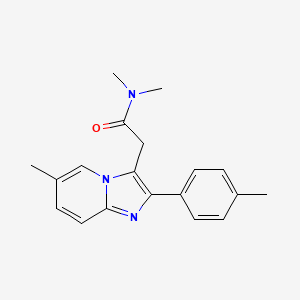TRIGGER WARNING: This article contains words and images related to substance abuse that can be potentially triggering.
In key findings by the National Center for Drug Abuse Statistics (NCDAS), sedatives like Ambien are included in the top five categories of prescription drugs that get abused every year. It is estimated that around 6 million Americans abuse sedatives alone, with 12 years old as the youngest user.
Addiction to Ambien and other psychotherapeutic drugs is widely misunderstood. Often, prescription addiction happens insidiously, meaning, the patient is not aware of their drug misuse. This might happen because of the wrong dosage or incorrect intake.
In today’s blog post, we’ll provide an overview of Ambien addiction, including information on signs and symptoms, withdrawal, and possible treatments.
What is Ambien?

Ambien is the best-known trade name for the ‘z-drugs’ zolpidem, zopiclone, and zaleplon. These Z-drugs are marketed as sedative-hypnotics, a category of prescription drugs that addresses sleep ailments like insomnia. Ambien is also promoted as a safer replacement for benzodiazepines, another category of prescription drugs used for anxiety, insomnia, and seizures. Another reason why Ambien is prescribed is for second-line treatment or when nonpharmacological treatment has been unsuccessful or is ongoing.
Drug Indications Of Ambien
Ambien is indicated for short-term treatment of insomnia, specifically for cases characterized by difficulty with initiating sleep. Controlled clinical studies have shown that taking Ambien decreased sleep latency for up to 35 days.
Ambien Dosage
Ambien is recommended to be taken at the lowest effective dose possible for the patient. For adults, the initial dose is 5mg for women and either 5 or 10mg for men taken only once a day. It is also recommended to be taken at least 7 to 8 hours before the planned time of waking up. It is not known if Ambien is safe and effective in children.
Dosage precautions are indicated and should be considered for special populations like the elderly and people with hepatic impairments. Certain considerations should also be put in mind when a patient is also using other medications. These precautions should be discussed with a medical professional before taking the medication.
What dose is considered for Ambien addiction? Generally, a dosage exceeding 10mg per day is considered misuse. This medication is also recommended to be taken as a single dose and should not be readministered on the same night. Again, only medical professionals with the right certifications can adjust and prescribe the right dosage for patients.
What Are The Effects Of Ambien?
The immediate effect of using Ambien is reducing the amount of time to fall asleep, usually around 15 minutes. For larger doses, it can also increase the length of sleep. Ambien works by inhibiting our natural brain activity which induces sleep, so most of the side-effects of Ambien are cognition-related. Here are the most common side-effects recorded during Ambien use.
- Nocturnal activity with amnesia. Complex behavior with amnesia is a common effect of Ambien. Some people reported doing complicated activities without any recollection of their actions like making or eating food, engaging in sexual intercourse, and even driving. The latter is included on the drug’s safety information page. Generally, it is not advised to do things that require clear thinking the day after you take Ambien.
- Sleepwalking. This is related to the nocturnal activity with amnesia. However, sleepwalking includes a wide variety of behaviors like muttering, talking, and confusional arousal. There has been no comprehensive study on this side-effect, but it was reported to happen to those who use sedative-hypnotics like Ambien.
- Hallucination or Psychosis. There were also reports of visual hallucinations and psychosis in some patients lasting from 30 minutes to several hours.
Physical side-effects of Ambien include:
- Recurring blackouts
- Uninhibition (sudden sociability or talkativeness)
- Impaired balance or coordination
- Nausea
- Vomiting
- Fatigue and weakness
- Unexplainable and uncontrollable shaking
Other side-effects reported during Ambien use are:
- Confusion
- Mood swings
- Depression
- Bizarre or unusual thoughts or behavior
- Thoughts of self-harm
As mentioned, Ambien is only prescribed for short-term use. Long-term use often leads to adverse side effects, tolerance, dependence, and addiction. Ambien addiction and withdrawal can negatively impact a person’s well-being and overall life. The cycle of addiction and withdrawal can also escalate into a case of overdose, which can be fatal to the individual.
What Are The Symptoms of Ambien Addiction?
Although promoted to be safer than benzodiazepines, Ambien is also classified as a Schedule IV substance. This means that it can be potentially addictive and can only be accessed through prescription by health professionals with appropriate certifications.
Another key finding by NCDAS is that only 1 in 10 people misuse prescription medications to get ‘high.’ This implies that people who use prescriptions do not intend to abuse their medications. However, Ambien’s addiction is insidious, and it can happen to anyone. Here are Ambien addiction symptoms to watch out for:
- Prolonged and high-dose consumption of Ambien than what is originally prescribed
- Spending a huge amount of time in planning, engaging in, or recovering from consuming Ambien
- Dependence on Ambien to cope or feel ‘normal’
- Inability to stop taking Ambien despite adverse effects on physical, mental, and emotional health
- Inability to stop taking Ambien despite wanting to
- Overlooking and neglecting daily responsibilities like work, school, and even relationships.
- Undergoing ‘withdrawal’ when trying to stop (i.e. experiencing depression, dissatisfaction, numbness, and other physiological and psychological effects)
- Concealing or downplaying the degree of Ambien misuse
Other signs that you or a loved one is addicted to Ambien can include the following:
- Overwhelming drowsiness
- Difficulty in coordination and balance
- Feelings of being ‘drugged’
- Slowed heartbeat
- Slowed breathing
- Uncontrollable shaking of body parts
- Weakness or fatigue
- Hallucinations
- Loss of memory
Over time, a person with Ambien dependence would eventually build a tolerance to the calming effect of the medication. Patients who have built up a tolerance may experience the symptoms of Ambien withdrawal. The next section will provide information on Ambien withdrawal and how to address it.
What Are The Withdrawal Symptoms of Ambien Addiction And How Is it Treated?

Signs Of Ambien Withdrawal
Ambien works but changing the signals in our brain and the direct effect of going cold turkey or suddenly stopping Ambien intake is rebound insomnia. This is basically insomnia returning but much worse and patients may not be able to sleep at all. Other signs of withdrawal when you have an addiction to Ambien are:
- High blood pressure
- Abnormal breathing
- Fever
- Sweating
- Tremors or uncontrolled shaking
- Muscle cramps or muscle pain
- Nausea and vomiting
- Agitation
- Anxiety or panic attacks
- Intense mood swings
Ambien Withdrawal Treatments
Going cold turkey on Ambien without medical supervision can be dangerous. Similar to benzodiazepines, symptoms of withdrawal can cause medical emergencies. Depending on the length of use and dosage, the above-mentioned symptoms can last around 10 days.
One of the long-term effects of Ambien addiction is tolerance which may potentially cause an overdose. Worse, the individuals with dependence on this medication might use this drug in combination with other substances, which may lead to serious health emergencies or even death.
Medical detoxification treatment is often recommended first to recover from addiction to Ambien. In this program, a patient is admitted to the rehab center with a live-in arrangement for the duration of the treatment program. During this period, a patient will be tapered off Ambien under 12/7 medical supervision.
In an Ambien rehab program, medical detox is integrated with long-term therapeutic interventions to maintain lasting sobriety. Some of these treatments and services are
- Behavioral Therapy
- Sleep hygiene training
- One-on-one counseling sessions
- Family therapy
- Support groups
- Alternative therapy for relapse prevention & aftercare strategies
These services and treatments can be through partial hospitalization programs or outpatient services depending on the severity of a patient’s case and health condition. Getting an assessment through professional help is the best way to know which program or combination of treatments is the right one for you or your loved one.
Restore Your Wellness

Addiction is such a complex illness rife with stigma and uncertainty. However, it is treatable. Getting the right program for your needs is vital in your recovery journey, and we at Restore Health & Wellness Center are here to help.
If you are ready to commit to treatment and break free from addiction, Restore has a dedicated team to help you achieve lasting recovery. We are one of the most invigorating adult recovery communities in Southern California. We offer a full continuum of care through specialized rehabilitation programs to help you or your loved one take back your life and live it to the fullest. We restore hope, we save lives. Recovery is possible.
Visit us at 6918 Owensmouth Ave, Canoga Park, CA 91303, or you can call us at 888-979-4570.












